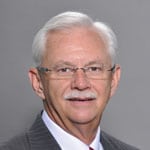

By Mike Futhey,
SMART Transportation Division President –
Throughout my career as a union officer, I have experienced every type of carrier safety program imaginable: from official company “snitches” to complex, overly burdensome and intrusive research, to innovative, cooperative, joint ventures. Employees need a program to know the program du jour.
When programs fall by the wayside, a newer, shinier version is released, with all the markings of its failing predecessor.
After such a critique, you may be surprised to know that, through it all, I have been a consistent proponent of collectively bargained, cooperative endeavors that recognize the real value of universal buy-in to a goal of a safer work environment.
The evidence is clear and convincing that a correlation exists between employee involvement and reduced incidences of on-duty injuries. There have been examples of carriers that have entered into collectively bargained agreements with our organization’s general committees that generated reduced rates of personal injuries on the job, only to see the positive results reversed when the agenda and agreement compliance morphed into a managerial option, with “reinterpretations” of long-standing proven processes becoming the standard.
There is one basic premise that must be recognized: “Our members are not masochists. This organization, from every level, desires to see each member go home safely at the end of the shift.”
We want to be a part of what works for the betterment of all concerned, but, we will not subscribe to a system designed to compromise the rights of the members we represent – we know the difference.
We know the difference when the managerial prerogative supersedes the integrity of the process.
We know the difference when the organization extends an offer to carriers to jointly explore a remedy for repeated violations of whistle-blower, provisions only to be met with “lawyering up.”
Genuine partnerships never, ever pull rank. Genuine partnerships must respect the integrity of the process and all who participate.
The process must be consistently adhered to, even when it is not comfortable to do so.
My message to the various decision-makers, whether they be in the airline, bus or railroad industry is, “it’s your call.”
The example you set will resonate, exposing the intent of your rhetoric. Do safety programs produce safety or manipulation of reality?
The answer to both is yes, if that becomes your intent.
Related News
- 2025 National Agreement Freight Negotiations Update from President Ferguson
- NRLC Bargaining Chart
- Brother Bill Link Retires After a Memorable 53 Year Career
- Bad Actors to be Restrained Thanks to New SMART-TD-backed Transit Bill
- Nebraska Reforms Standards for Rail Crew Transportation
- Show Your Pride, Win Shirts for Your Entire Local
- Local Pride T-Shirt Contest Rules
- Where Do You Get Your News? Help SMART-TD Meet You There
- Senate Strikes Down Spending Bill’s Harmful AI Provision
- Razor blade found on brake wheel